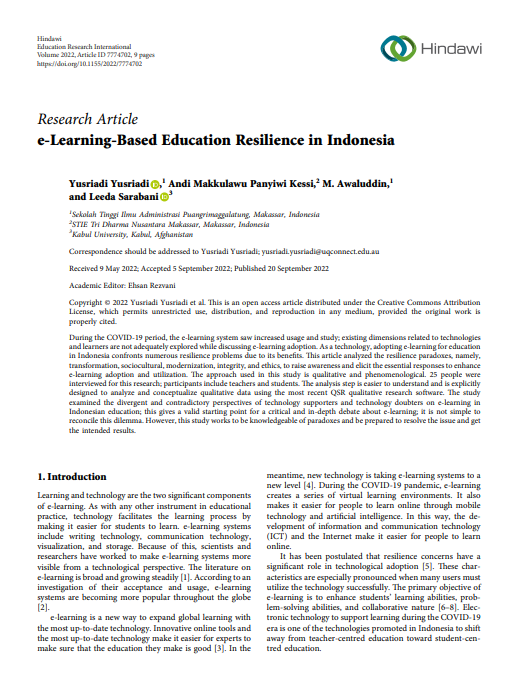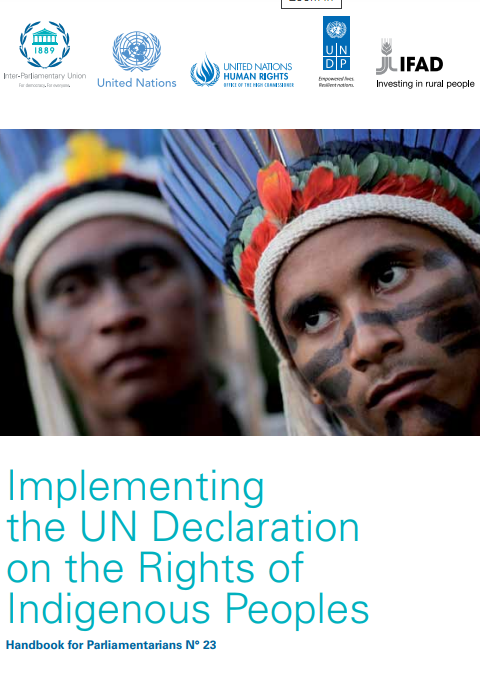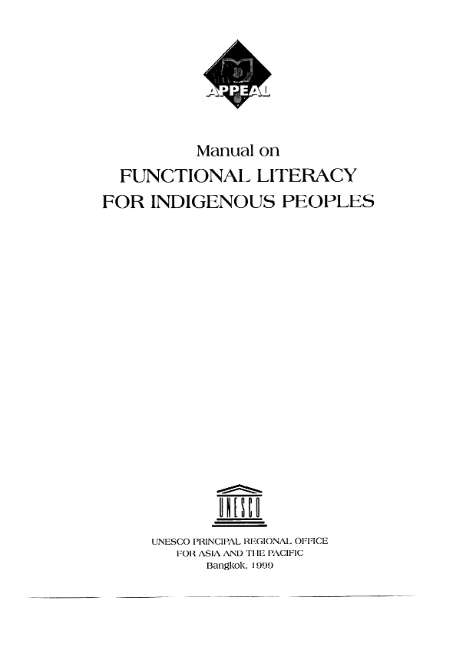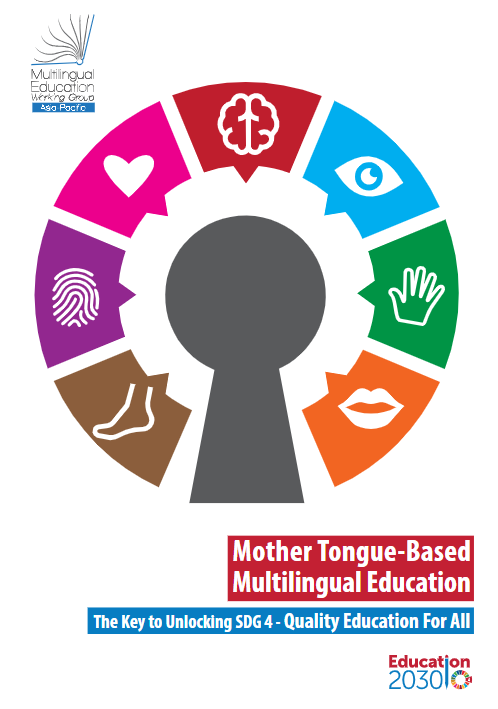Knowledge Hub

e-Learning-Based Education Resilience in Indonesia
2022
Author(s): Yusriadi Y, Kessi AMP, Awaluddin M, Sarabani L , Rezvani E
The study examined the divergent and contradictory perspectives of technology supporters and technology doubters on e-learning in Indonesian education; this gives a valid starting point for a critical and in-depth debate about e-learning; it is not simple to reconcile this dilemma.
Designing for Action: Principles of Effective Sustainability Measurement
2013
Author(s): Connell DO, Raison J, Dodds SH, Braid A, Cowie A, Littleboy A, Wiedmann T, Clark M
This paper provides a summary of a more detailed full Report commissioned by the World Economic Forum Global Agenda Council on Measuring Sustainability. Its purpose is to provide a framework and guide for people engaging with the complex and evolving sustainability literature and the development and application of sustainability assessment tools.

The United Nations Declaration on the Rights of Indigenous Peoples: Background, content and implementation
2014
Author(s): Sherpa L , Beeckmans R , Raj S , Richardson A , Requesens A
The modern indigenous rights movement gained momentum in the 1960s and the 1970s, when a large number of non-governmental organizations (NGOs),
Energy Harnessing: New Solutions for Sustainability and Growing Demand
2013
Author(s): King D , Grey C
This report assesses key technologies that must be developed in order to convert current, out-dated grids to smart grids, which are essential for a critical area of energy harnessing –using energy efficiently.

Manual on Functional Literacy for Indigenous Peoples
1999
Author(s): UNESCO Principal Regional Ofice for Asia and the Pacific.
Definitions of literacy have also included the recognition of numbers and basic mathematical signs and symbols within texts. This skill used to be called numeraq. In practice, however, people need to understand and use mathematical skills in a range of contexts, in a similar way to their reading and writing skills. Simple recognition of signs and symbols has given way to a broader definition of numeracy that includes using an understanding of mathematics as a tool to make a particular sense of the world.

Guidelines for Inclusion: Ensuring Access to Education for All,
2005
Author(s): Wisbey M
This study shows that SDG 4 is so foundational to the other Sustainable Development Goals, without mother tongue-based multilingual education the other 16 goals will remain unachievable.
Time to Act: Investing in Addressing Social Determinants to Improve Health
2021
Author(s): World Economic Forum
This paper provides the building blocks to help private sector players invest in initiatives that address social determinants of health concerns in their communities. Through analysis of pioneering initiatives, the paper extrapolates key overarching guidelines and principles, as well as steps for design planning, implementation and monitoring.
The Status of Women in Agrifood Systems
2023
Author(s): Food and Agriculture Organization of the United Nations (FAO)
This study provides a comprehensive analysis of the available evidence on gender equality and women’s empowerment in agrifood systems that has been produced over the last decade. The report also provides policymakers and development actors with an extensive review of what has worked, highlighting the promise of moving from closing specific gender gaps towards the adoption of gender-transformative approaches that explicitly address the formal and informal structural constraints to equality.

Following The Rhythm of Mother Earth Learning From Indigenous Peoples’ Food Systems and Their Respect for Nature
2021
Author(s): Food and Agriculture Organization of the United Nations
To obtain food according to each season, the Tikuna, Cocama and Yagua peoples combine different practices, such as fishing, hunting and chagras farming, an ancestral, diversified productive system in which annual and perennial species are cultivated and where trees are selectively cut and burned to replicate healthy forest succession.

Training tools for Curriculum Development: Reaching Out to All Learners: A Resource Pack for Supporting Inclusive Education
2016
Author(s): UNESCO International Bureau of Education
This guide provides a framework that is intended to stimulate discussion of these issues among policy- makers within a country. It presumes that the aim of inclusive education is to eliminate social exclusion that is a consequence of attitudes and responses to diversity in race, social class, ethnicity, religion, gender and ability



